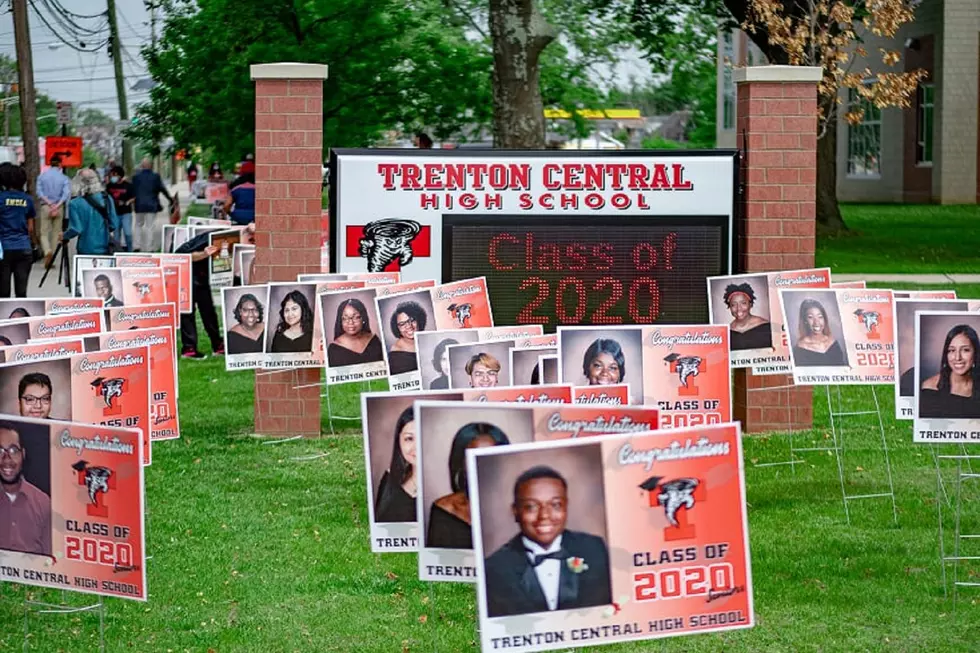![New Jersey Lags the Country In Civil Rights Education – Is More Sensitivity Training Needed? [POLL]](http://townsquare.media/site/385/files/2014/03/wrestling-300x294.png?w=980&q=75)
New Jersey Lags the Country In Civil Rights Education – Is More Sensitivity Training Needed? [POLL]
Say the words “sensitivity training” and chills go down the spine.
Why that is is because we live in a world of political correctness where mere utterances can be construed as insensitive, or at worst, racist!
However, one thing has come to light in the wake of the recent brouhaha over the photo taken by the Phillipsburg High School wrestling team of a tackling dummy posed to look like a lynching.
Kids today have little awareness of the events in our history which still conjure up horrific images to certain members of our society.
I’d been saying all along that the photo was viewed by the team as a prank. Obviously not by everyone who'd seen the picture, and for that I was taken to task.
But the fact is, many young people have a lack of what I termed “historical sensitivity” when it comes to the suffering many have had to endure during the civil rights movement.
And that lack of sensitivity has been borne out by the finding that in New Jersey in particular, there hasn’t been much of an emphasis placed on educating teens on these events.
In the wake of a photo scandal that has caused educators and community leaders to reevaluate the way civil rights and black history is taught in New Jersey, the Southern Poverty Law Center has released a report detailing the entire country’s “woefully inadequate” coverage of these topics.
When a photograph surfaced last month showing seven Phillipsburg High School student wrestlers posing with a dark-colored grappling dummy, which was wearing a Paulsboro wrestling t-shirt and hanging from a rope, many were outraged at the unfortunate imagery it depicted.
The photograph was called a “mock lynching” and derided as an incident that showed lack of historical context and sensitivity.
Lynn Azarchi, executive director of the Kidsbridge Tolerance Museum in Trenton, called the incident a “teachable moment.”
“We are doing a lousy job of teaching kids sensitivity, awareness and most importantly, empathy,” she said last week.
Now, a new report by the Southern Poverty Law Center, based in Montgomery, Ala., describes a failure to teach civil rights history throughout most of the country, which could contribute to this insensitivity, according to Julian Bond, NAACP Chairman emeritus.
“I find in the teaching I do at the college level, a great number of young people come to me unprepared,” he said during a Wednesday morning conference call. “They don’t have a beginning of understanding...They’ve never been taught or exposed to this.”
The SPLC’s study — titled “Teaching the Movement 2014: The State of Civil Rights Education in United States” — examined curriculum standards regarding the Civil Rights movement in all 50 states and the District of Columbia. It graded each state on content, sequence, depth of study and connections to the students’ and teachers’ lives and communities.
New Jersey received a grade of D, a slight improvement from the 2011 report, in which New Jersey received an F.
“New Jersey did not fare well,” said Maureen Costello, the SPLC’s Teaching Tolerance director. “I think it can improve, if in fact attention is paid to the things that are not often talked about. For example, how can you really understand Birmingham or Brown versus Board of Education without understanding the 90 years of oppression that came first?”
The state is one of 20 that received “D” grades, meaning the SPLC believes they should significantly revise their standards and resources so students have a comprehensive picture of the civil rights movement.
Only three states — South Carolina, Louisiana and Georgia — received grades of “A.” Twenty received an “F.”
“The civil rights movement isn’t just sit-ins and bus boycotts; it is a long, long struggle for equality that has lasted years and years and will last years more,” said Bond. “That’s why Teaching Tolerance’s study of what is and is not taught about civil rights is so important. If we do not learn these stories, we cannot understand how important they have been and how necessary they are.”
Question is, had the wrestlers the knowledge of the background of the civil rights movement, would they still have posed the dummy as a lynching victim?
We can’t really say, but the smart money is that they would at least have thought twice about doing it.
Some might say that would be stifling free expression in the guise of political correctness - yet should these hurtful images be shrugged off as mere "pranks?"
More From New Jersey 101.5 FM









